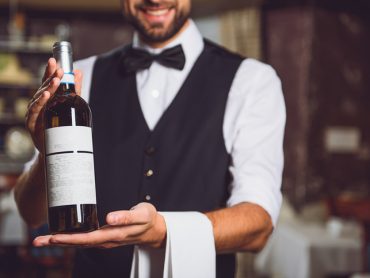In Vino Veritas LXXXIV: You Can’t Learn Wine in a Day
As with selling most other things, it certainly helps to be both well-informed and passionate about a given item in order to convince a customer to make a purchase. With wine, a specific challenge restaurateurs and servers face is getting patrons to opt for a more expensive glass or bottle because this takes confidence and proficient knowledge in the subject matter. And one cannot become conversant in a day, meaning that continued education is necessary to increase alcohol sales.
Before getting into some tactics, let’s address why this is important now. First, as with everything, one long tail effect of COVID-19 may be a lingering aversion to dining out, meaning fewer covers overall and in turn a necessary quest for driving more revenues on a per-table basis. Related to this, the pandemic has hit many people in terms of salary reductions, diminished wages or worse, thereby leading to tighter spending when out and a preference for the cheapest option if wine is the beverage of choice. The third reason is a bit more existential in that wine is gradually losing its prestige amongst younger drinkers who increasingly opt for craft beer, cocktails or abstinence.
Taken together, it’s not too farfetched to envision a scenario where only the least expensive inventory actually moves and at a reduced pace then before the pandemic. Without enthusiastic servers to tell wine’s multifarious story and guide customers towards the best pairing, revenues will be compromised as will meal satisfaction.
Specific to hotels, there’s a halo effect here as any disappointment with the restaurant can emotionally transfer back to one’s appreciation of the guestroom – that is, the totality of the onsite experience that is conveyed in an online review. Moreover, in the pursuit of a more contactless guest journey, many hotels are deepening the consolidation between dine-in restaurant and delivery or room service operations, meaning that there’s an opportunity for oenophilic guest service agents to upsell those guests wanting something sent to the suite.
Returning to the title, learning about wine is as much fun as drinking it (well, almost), and you increase your proficiency one glass at a time. This fits perfectly within the contemporary bite-sized learning or microlearning model whereby 15 minutes per day results in far better information retention then sitting through an intensive, two-hour session once per week.
There’s also a symbiotic relationship between education and passion at work here. The more one is taught the higher the likelihood that an individual will develop an innate curiosity for the subject matter. It’s a bit of a virtuous circle in that regard, although teaching should be focused exclusively on quality over quantity of alcohol consumed.
On that note, here are some ideas to help round out your team’s wine knowledge that they can sell it better and increase beverage revenues:
- Host team tastings both to build internal bonds and show your appreciation
- Give staff generous discounts on restaurant wine purchases
- Invite veteran servers, and not just sommeliers, restaurant managers or F&B directors, to attend meetings with wine merchants
- Incorporate some tidbits of news on the latest inventory arrivals in the company bulletin or internal newsletter
- Post little factoids around the kitchen or embedded in emails to enhance microlearning
- With Covid still likely to prevent many gatherings – staff-only events included – for quite some time, consider hosting virtual team happy hours where all participants are invited to bring their own bottle and briefly discuss it
Like many, the pandemic has been a time for introspection, acquiring new skills and filling the void of social events with learning of all types. Spend some time investigating how you can emerge from this mess as a true wine connoisseur so that you can help your restaurant realize success later this year.


